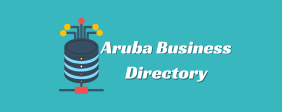When it comes to a certain strategy to create your emergency fund, I found that the best way for me is to keep saving and investing the majority of my freelance income. I set aside a certain amount of money to cover my expenses, and invest the c level contact list of my income into dividend stocks. For me this is the right way to go, because I want to work less and less, and by having a steady passive income from dividends gives me freedom to do so.
How much you save per month is of course up to you and depends on your income and expenses. If you’re just starting out, you might need most (or all) of your income to cover expenses, but once you get a solid client base, you can start saving more and seo for retailers: 10 tips for more foot traffic to your shop of your income and put it towards your emergency fund or retirement portfolio.
I think it’s important not to consider
an emergency fund just as something that is there in case you face a big challenge or a real emergency. It’s there to secure your future as a freelancer. The bigger your fund gets, the more freedom you have to take risks, search for ideal customers and you could even take a mobile lead months off working all together.
As with anything, consistency is key. You need to keep saving money every month, even through good and bad times. Of course you can adjust the amount of monthly savings depending on your situation, but I would recommend saving more when business is good, and less if you are going through a dry spell in your business.
Most investment platforms allow you to set up monthly payments that will be taken from your bank account automatically, and they can even be invested automatically into stocks or funds that you pick. When it’s automated, it stays consistent, and you don’t even have to think about it. The money goes from your account, and you can just watch it grow through interests and dividends month by month.
Conclusion
Freelancing is uncertain. Your clients could technically fire you at any time, and it’s up to you to build a secure financial situation for yourself in case something like this happens. Diversifying your income is important, especially if you can build some passive income streams for yourself. Also, pricing strategies play a role, I prefer flat, project-based pricing that allows me to know exactly how much money is coming in every month.
From my point of view, an emergency fund is not just for emergencies, it should be your plan to secure your future as a freelancer. It should be your retirement plan – a savings account that you keep adding more and more money to, until it grows so big that you can use dividends or interest payments to cover your living expenses.
5 Benefits of White Label Websites
Now that we’ve covered what is white labeling and how it works, let’s dive into why it is such a popular solution among agencies. From my experience, there are several compelling reasons why so many businesses are turning to white label solutions.
Here are the 5 most impactful benefits I’ve seen in practice:
#1. Cost Efficiency and Time Savings
Many of our agency partners are surprised by how much time and money they save with white label services. Instead of building each site from scratch, they can rely on our team to handle the development process efficiently. This means faster project turnarounds, fewer internal resources spent, and ultimately, the ability to take on more clients.
#2. Scalability Without Overhead
White label websites allow agencies to scale up quickly without needing to hire additional staff or invest in training in-house developers. During peak project seasons, we’ve been able to support our partners by handling multiple projects at once, helping them meet tight deadlines and manage increased workloads.
#3. Brand Building and Enhanced Service Portfolio
Offering white label projects has enabled our partners to position themselves as full-service digital agencies, providing complete website solutions without having to master every technical detail. This enhances their service portfolio and also strengthens their brand presence in the market.
#4. Focus on Client Strategy, Not Technical Execution
With the technical work handled externally, agencies can spend more time focusing on client management and strategy. This means they can be more involved in understanding what clients need and guiding the overall project direction.
